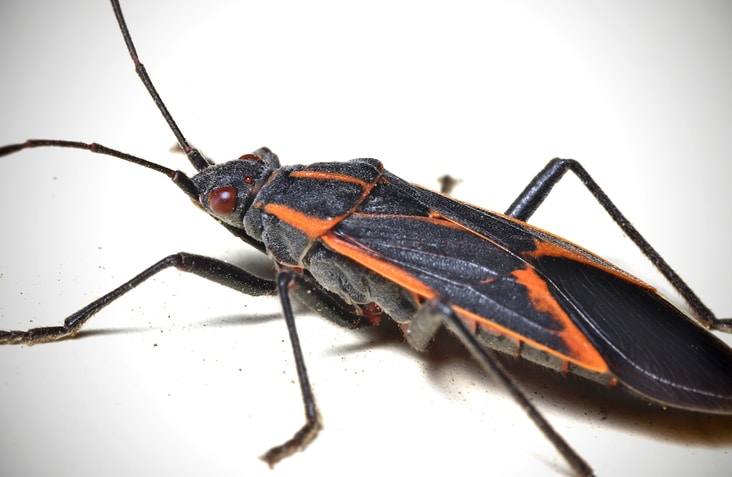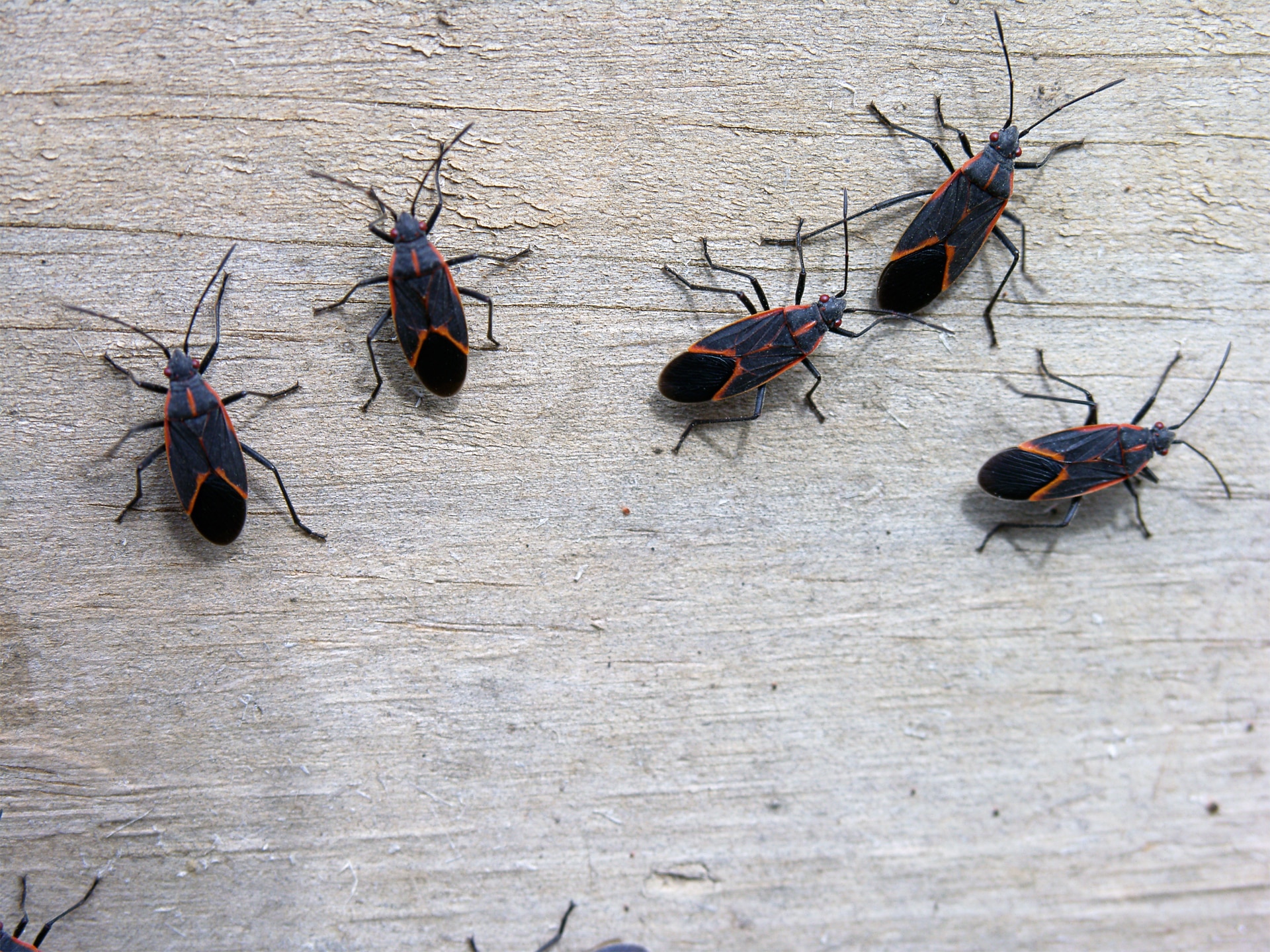
How to Get Rid of Box Elder Bugs in North Carolina and South Carolina
If you’ve noticed clusters of red and black insects gathering on your windows, doors, or siding in North Carolina or South Carolina, you could be dealing with box elder bugs. These nuisance pests are especially active during the fall as they search for a warm place to spend the winter. While they don’t pose a serious health risk, a box elder bug infestation can quickly become a frustrating problem for homeowners across both states.
What Are Box Elder Bugs?
Box elder bugs are small, oval-shaped insects with black bodies and red or orange markings along their wings. As their name suggests, they’re commonly found around box elder trees, as well as maple and ash trees. During the warmer months, they feed on seeds, leaves, and developing fruits. When temperatures drop, they move toward buildings, seeking cracks and openings to shelter indoors.
Are Box Elder Bugs Harmful?
Box elder bugs are not considered dangerous, but they can still cause headaches for homeowners. They do not sting, transmit diseases, or damage structures like termites or carpenter ants. However, they can stain curtains, furniture, and walls with their droppings or when crushed. A large number of these insects inside your home can also create an unpleasant odor and an unsanitary environment.
Do Box Elder Bugs Bite?
A common question homeowners ask is, “Do box elder bugs bite?” The answer is no, not in the typical sense. Box elder bugs do not bite humans or pets for blood. They have piercing-sucking mouthparts used to feed on plant material. On rare occasions, if handled or pressed against the skin, they may prick, which can cause minor irritation but is not medically significant.

Signs of a Box Elder Bug Infestation
During the fall and early winter, box elder bugs often gather in large numbers on sunny sides of homes or near entry points like windows and doors. You may notice clusters of bugs on the exterior siding, window screens, or foundation, live or dead insects near windowsills, attics, or light fixtures, red or rust-colored stains on curtains, furniture, or walls, and a foul odor when bugs are crushed. If you’re seeing these signs, it’s time to act before the infestation worsens.
Regional Prevention Tips for North and South Carolina
Understand Local Climate and Home Conditions
The Carolinas’ long, warm seasons and humid climate make homes more attractive to box elder bugs. In North Carolina’s Piedmont and coastal regions, prolonged warmth often extends the insects’ activity into late fall. In South Carolina, mild winters allow them to overwinter in hidden cracks or attics more easily. Homes with vinyl or wood siding and pier foundations are particularly prone to gaps that provide ideal entry points. Sealing these areas early can prevent large indoor populations later.
Follow a Proactive Seasonal Maintenance Schedule
Box elder bug prevention is most effective when done seasonally. Here’s a practical schedule homeowners in the Carolinas can follow:
- Late Summer: Inspect siding and window frames for cracks and gaps. Apply caulk or weather stripping before temperatures drop.
- Early Fall: Check window screens, door sweeps, and attic vents for tears or gaps. Repair or replace as needed.
- After Leaf Drop: Rake and remove fallen leaves, seeds, and debris around the foundation that can attract bugs.
- Winter: Monitor attics and basements for insect activity and vacuum any stray box elder bugs.
- Spring: Trim branches touching your home and clear gutters to limit new entry routes for the next season.
Modify Landscaping to Reduce Attraction
While removing box elder trees helps, not every homeowner wants or can remove mature trees. Instead, consider other landscaping modifications that limit bug activity. Replace or supplement host trees with non-host species such as oak or dogwood. Maintain a mulch or gravel barrier around the foundation to reduce moisture and seed buildup. Avoid dense shrubs or heavy ground cover directly against the house where box elder bugs may gather for warmth.
Integrate Preventive Cleaning into Home Routines
Regular cleaning can make a big difference in keeping box elder bugs out. Vacuum window tracks, wipe down sills, and clean porch lights where bugs gather during warm evenings. Adding these small tasks to your weekly or seasonal maintenance routine helps prevent buildup and makes your home less inviting to pests.
Professional Box Elder Bug Control in North Carolina and South Carolina
At Anticimex Carolinas, we specialize in safe, effective, and environmentally responsible pest control solutions across North Carolina and South Carolina. Our experts identify entry points, apply targeted treatments, and create a prevention plan tailored to your home. Don’t let box elder bugs take over your space this season. Contact Anticimex Carolinas today at 866-781-4991 or request a free quote online to protect your home before the next wave of pests arrives.
